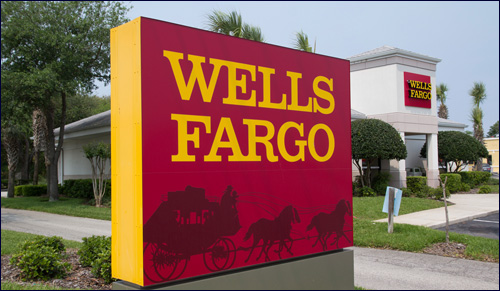 Iran’s Attack on Israel
Iran’s Attack on Israel


5 min read
The confession “I take full responsibility” should not become a meaningless expression that makes a mockery of repentance.
First the facts: In a boiler room atmosphere of excruciatingly high pressure to boost Wells Fargo Bank’s numbers, John Stumpf, the bank’s chairman of the board, made clear to his employees that there were daily quotas for tellers and personal bankers at Wells Fargo to push account holders to open new accounts – and to do whatever it takes to make sure they were successful. So from 2011 through 2015, Wells Fargo opened more than 2 million bank and credit card accounts for customers without their authorization. When signatures were required, they were forged. Bank clients were charged more than $2.6 million in unwarranted fees, all of which was able to boost the company’s stock by $30 per share.
It took a while for regulators to discover the fraud. In the meantime the value of shares personally owned by Stumpf jumped by over $200 million. Once the swindle became public, lawmakers pressed the CEO for action. Not to worry, he assured everybody. He was personally going “to take full responsibility.”
So here’s what he did next: He fired some 5300 low ranking employees – the people at the very bottom of the food chain who made about $12 per hour – who were forced into their illegal involvement at the risk of losing their much-needed jobs. And of course, when pressed by the Senate committee chairman Elizabeth Warren to give back the money he personally took while the scam was going on as well as the increase of his portfolio based on nothing more than outright theft, he made clear that wasn’t part of his obligation at all. Nor did he commit to clawing back any of the pay given to executives during the years the sham accounts were opened, including granting a lavish retirement package to the director in charge of the entire program who walked away with $124.6 million in stock and options!
“Full responsibility” has become nothing more than a devious strategy to avoid further retribution, a cynical ploy to get a free pass for forgiveness
The words “I take full responsibility” were uttered under the bright lights of a United States Senate hearing. They were sworn to by the CEO of Wells Fargo, one of the most valuable banks in the world, in response to the unearthing of a monstrous financial scandal under his leadership and almost certainly with his knowledge and authorization. Yet what became strikingly clear soon enough was that they carried with them no intention to assume any financial penalties, to suffer any personal consequences, or to pay any price for a grievous admitted criminal act. Once more we were treated to the phrase which has become almost the default of scoundrels who seek to have their sins forgotten and their crimes forgiven. “Full responsibility” has become nothing more than a devious strategy to avoid further retribution, a cynical ploy to get a free pass for forgiveness – as if it deserves automatic absolution without the willingness to accept any personal penalty.
Indeed, “full responsibility” has become the most meaningless phrase in the English language. As noted economist and social theorist Thomas Sowell put it: “Don’t you love it when someone says, ‘I take full responsibility’? Translated into plain English, that says, ‘Now that I have admitted it, there is nothing more for me to do (such as resign) and nothing for anyone else to do (such as fire me).’ Saying ‘I take full responsibility” is like a get-out-of-jail-free card in the Monopoly game.’ ”
John Stumpf is just one in the long line of rogues who have turned “I take full responsibility” into a meaningless personal confession expressed as supposed apology but offered merely as a way to stave off any further punishment or guilt. It isn’t the first step to paying a price for the problem; it’s a statement used to avoid paying any price at all.
Repentance can only begin with the recognition that we are fully responsible for our actions.
Thankfully we’ve just learned that in light of all the negative publicity surrounding this blatant injustice, the Board of Wells Fargo has decided to actually put some financial bite into Stumpf’s admitted self-guilt. Remarkably, Stumpf is being forced to forfeit 41 million dollars of his ill-gotten gains – although he will assuredly be able to manage with the remaining millions he managed to loot from an unsuspecting public. His version of “full responsibility” won’t condemn him to the kind of financial suffering he caused for his now fired low-level employees as well as his bank’s customers.
Taking personal full responsibility is precisely the theme during the High Holy Day period. None of us are blameless. On Yom Kippur we verbalize our failings. We acknowledge that we have fallen short in so many ways, that we could have been so much better, that we are ashamed of our weaknesses and imperfections. Repentance can only begin with the recognition that we are fully responsible for our actions.
We must be careful not to fall into the contemporary trap of acknowledging responsibility without recognizing any consequences. As we beat our breasts and seek atonement, we must remember that taking full responsibility isn’t enough unless it is joined to a sincere commitment for change, for rectifying the sins of the past and for making ourselves worthy of divine blessings.
